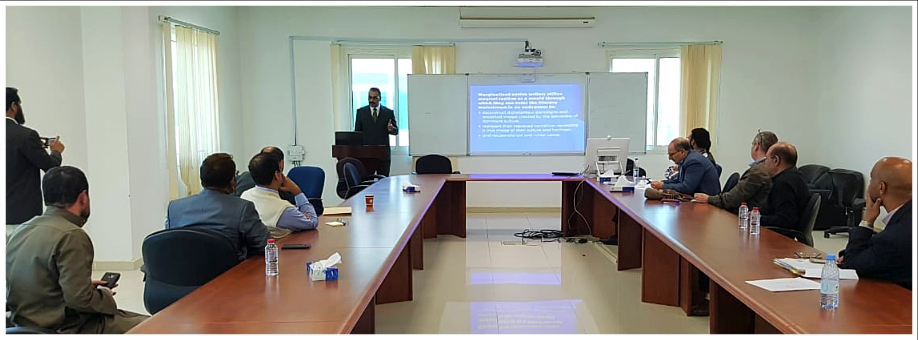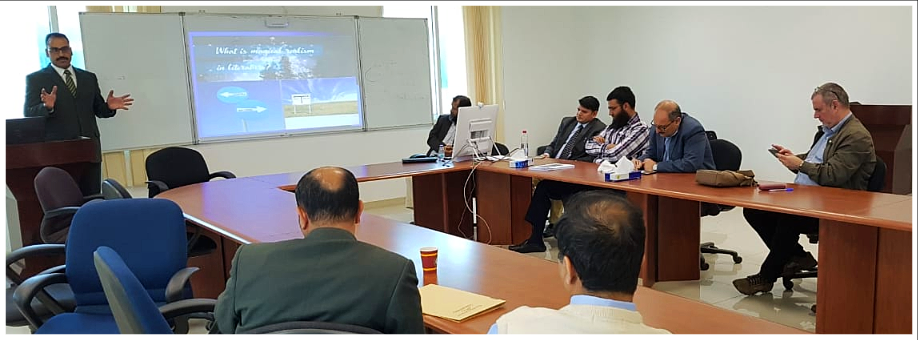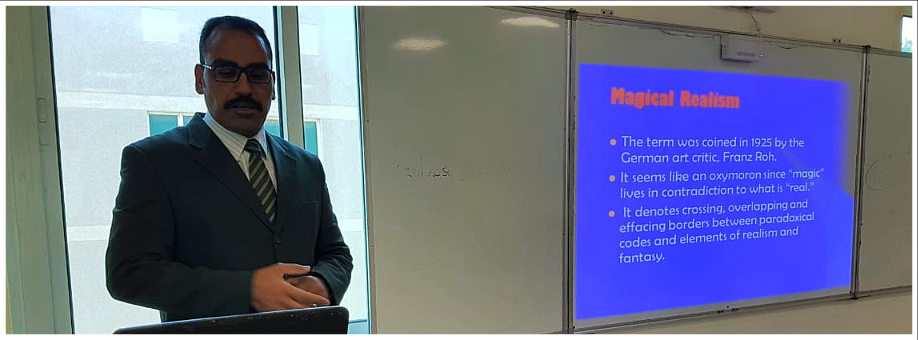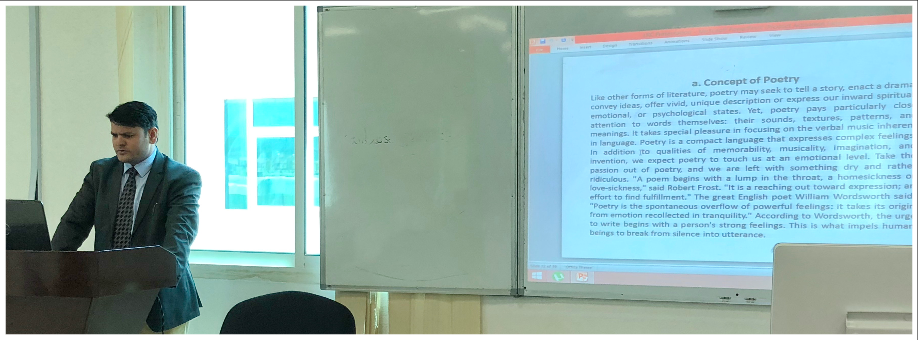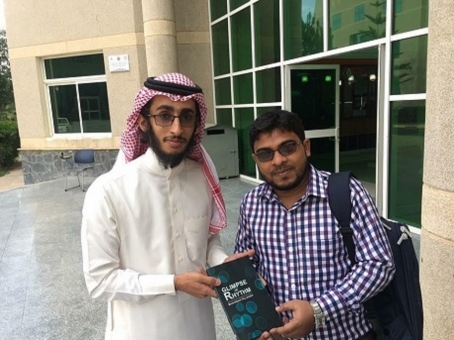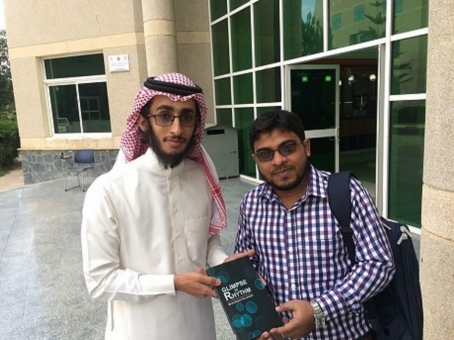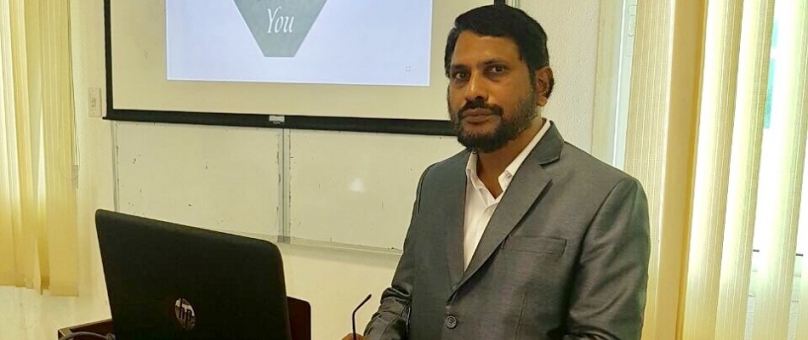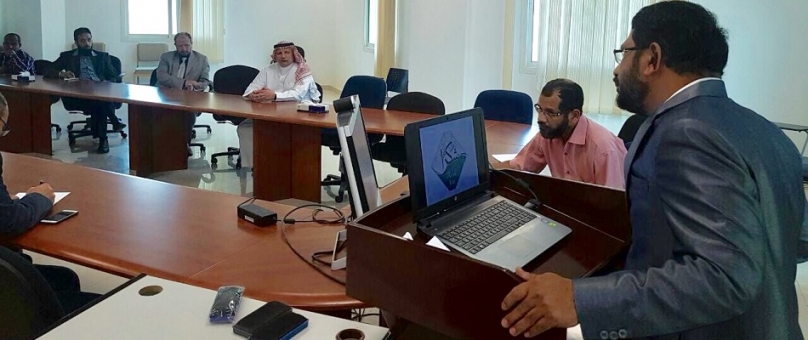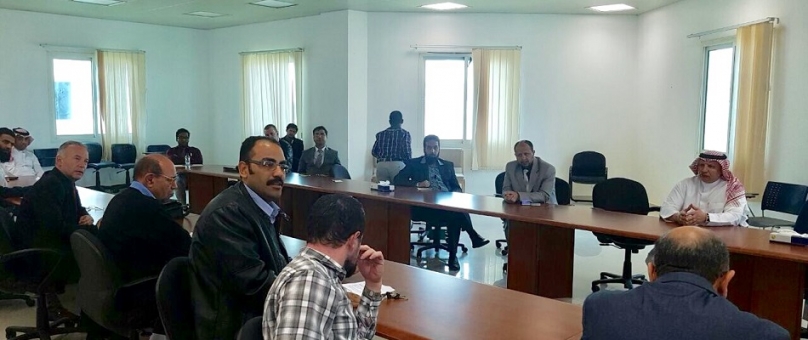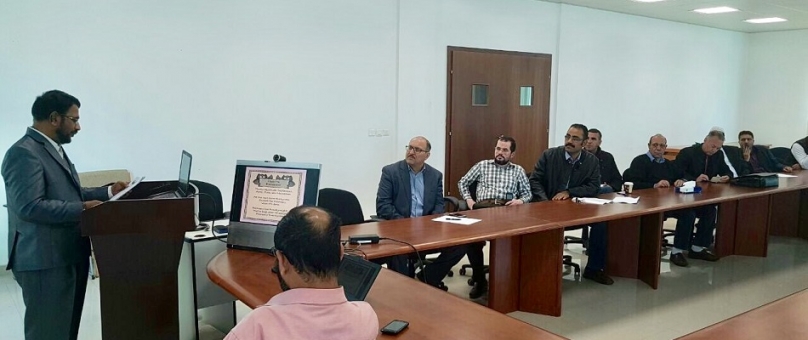LRC Presentations Fascinate Audience
On April 18, 2018, the Language Research Center of King Khalid University organized a seminar that included two presentations – The Concept of Poetry: T. S. Eliot versus I. A. Richards by Dr. Manoj Kumar and Re-appropriating Magical Realism in Arabic Narratives by Dr. Mahmoud Radwan.
Dr. Manoj’s presentation was based on his study that aimed at highlighting the contradictory opinions on the concept of poetry and how both are suitable and witty to two different readers. In the beginning, he talked about the etymology of the word ‘poetry.’ He stated that this word was derived from the Greek word ‘poiesis’ that means ‘making.’ He discussed in detail the overall concept of poetry. He focused on forms, genres, compositions, etc. Dr. Manoj explained Eliot’s classism and theories of impersonality, and later I.A. Richard’s theory of literary criticism and T.S Eliot. He also compared Eliot’s and Richard’s language of poetry. Dr. Manoj concluded that T.S. Eliot and I. A. Richards belong to the galaxy of critics who are also well known as poets.
Dr. Mahmoud Radwan started his presentation by defining Magical Realism. The term, he said, had been coined by Franz Roh in 1925. It denotes, he added, crossing, overlapping and effacing borders between paradoxical codes and elements of realism and fantasy. Dr. Radwan explained the reason why writers embrace Magical Realism. He stated that marginalized native writers utilize Magical Realism as a mold through which they enter the literary mainstream to deconstruct dichotomous paradigms and projected images created by the advocates of the dominant culture, represent their repressed narratives, and recuperate lost and minor voices. Finally, he mentioned Arab writers who were inspired by Magical realism – Naguib Mahfouz, Ghairi Shalabi, Edwar Al-Kharrat, Emile Habibi, Ibrahim Al Kuni and Ghadah Al Samman and so on. Dr. Radwan concluded that re-appropriation of Magical Realism in Arab narratives emerges as an example of how in adopting such a mode, the act of writing becomes an act of survival, rescuing fragments of the Arab culture from oblivion, shedding light on history, tradition, and reality.
The seminar was overall a great success.
Date: 4/20/2018
Source: Mohammad Adil Siddique
Multimedia Source: Dr. Iustin Sfariac and Dr. Mihaita Horezeanu

